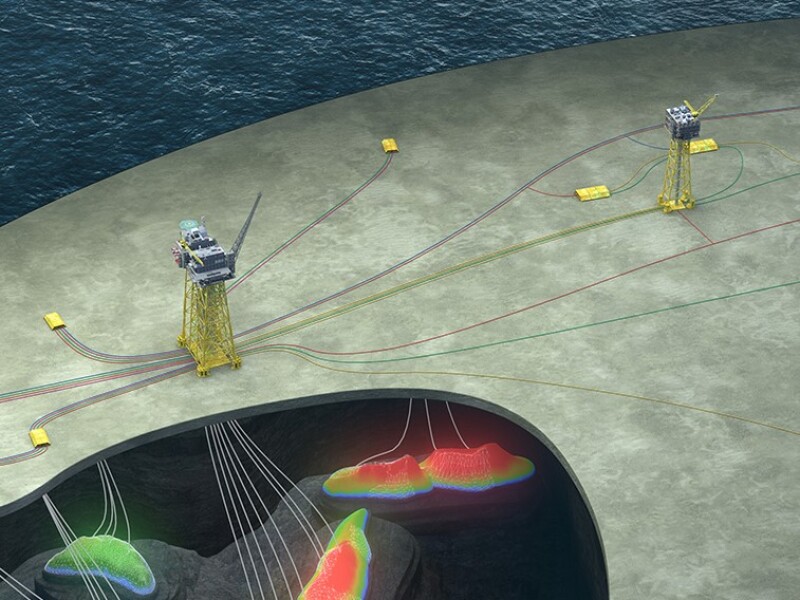Norwegian shelf operator Aker BP said it plans to spend at least $15.3 billion over the next 5 to 6 years in a bid to increase daily production from almost 400,000 B/D to about 525,000 B/D by 2028.
The company said in an announcement that the spending will focus on 15 developments that it operates offshore Norway. Aker BP acquired some of the developments after its $14-billion acquisition of Lundin Energy’s oil and gas assets in June.
At least $10 billion of the capital outlay is needed to develop the NOAKA (North of Alvheim, Krafla, and Askja) project which Aker BP estimates holds 600 billion BOE at a breakeven crude price of $30/bbl. The project is set to become one of the biggest Norwegian shelf developments started in recent years and may come onstream in 2027.
The NOAKA project was to be jointly operated with Norwegian state-owned operator Equinor. However, in May, Equinor agreed to transfer operatorship to Aker BP. Equinor retains a 50% share in the Krafla license area and 40% in the Fulla license area.
The NOAKA area is found between the Oseberg and Alvheim fields and previously announced plans called for a manned processing platform to be built, an unmanned platform, satellite platforms, and subsea tiebacks.
Aker BP will spend another $4 to $5 billion to build a new platform for the Valhall field in the southern tip of the Norwegian North Sea. This project will also involve a subsea tieback to the Fenris Field.
Another $1.6 to $2 billion is to be invested in developing satellite fields near the Skarv floating production, storage, and offloading unit. Aker BP said its future work scope also includes further subsea tiebacks to new discoveries made in other fields in the North Sea.
Aker BP noted that it expects the new projects will generate more than $17 billion in tax payments to the Norwegian government and that the company will pay more than $41 billion in total taxes over the next decade.
Karl Johnny Hersvik, CEO of Aker BP, highlighted that the proposed spending plans comes a little over 2 years since the pandemic sent oil prices tumbling and halted industry spending. He said that “in the midst of the crisis” a new emphasis from government, trade groups, and industry was placed on doing more to support domestic suppliers.
“The result was a package of measures adopted by a broad majority in the parliament in June 2020. This package of measures made the oil companies able to invest again. The wheels started turning. And now the suppliers are receiving large and important assignments,” Hersvik said in a statement which mentioned the recent awarding of the Valhall platform construction to Stavanger-based Rosenberg Worley.
Oslo-area-based Aker BP is owned by Aker (21.2%), BP (15.9%), Nemesia (14.4%), and other Aker BP and Lundin Energy shareholders (48.6%).


